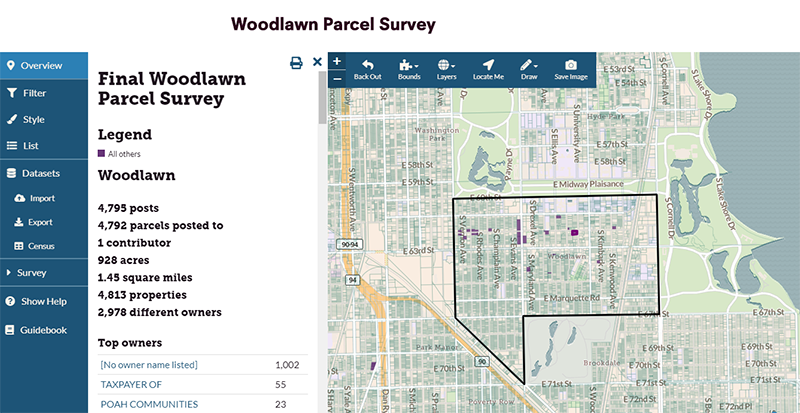Chicago Development Highlights Collaborative Efforts to Preserve Housing and Develop Sustainable Communities
In her closing remarks at the recent Foundations for the Future of Housing Conference, Julia Stasch, past president of the MacArthur Foundation, astutely observed that years ago the room would have been occupied solely by housing finance experts. But, in October 2019, that had morphed into an audience of experts including public health officials, not-for-profit affordable housing developers, academic researchers, fair housing specialists, and municipal agents—to name a few. The conference, attended by nearly 400 professionals, was a capstone of the MacArthur Foundation’s “Window of Opportunity” and “How Housing Matters” programs. Conference panels and events hosted by the Urban Institute and the MacArthur Foundation integrated insights from an array of fields throughout the three-day event, encapsulated in common themes including social justice and racial equity, cohesive cross-sector community collaboration, and the value of local knowledge and data.
As part of the conference, attendees were given the opportunity to tour the Wooodlawn Park area of Chicago, a development which illustrates how public and private actors can collaborate to preserve housing and develop sustainable communities. Led by Bill Eager, senior vice president of real estate development at Preservation of Affordable Housing (POAH), the site visit showcased the Woodlawn development area located in the South Side of Chicago; a neighborhood undergoing revitalization located in a historically disinvested community of color adjacent to the University of Chicago. Jackson Park, within the Woodlawn neighborhood, has been designated as the location for The Obama Presidential Center—a decision that was met by ambivalence. Residents of the neighborhood, which is 84 percent African American, shared conflicting feelings about the Presidential Center, its promise for reinvestment in the community contrasting with the potential for displacement of long-time residents. However, to address the onset of changes in the housing market of the community, represented in part by the Presidential Center’s impact on Woodlawn, multisector approaches from POAH, Woodlawn East Community and Neighbors (WECAN), and the University of Chicago’s Community Programs Accelerator contributed to facets of community development that have helped improve the neighborhood. Substantial resident involvement with these organizations was the vehicle driving equitable development, averting potential for displacement, and addressing existing neighborhood challenges.
One product of this cross-sector collaboration is the Woodlawn Housing Data Project. Students from the University of Chicago’s Harris School of Public Policy volunteered their technical skills to help WECAN map every parcel in the neighborhood, compile a dataset of parcel factors, and prepare a report that assesses the status of the neighborhood, followed by policy recommendations. The project illustrates the importance of local data in gaining an understanding of local context when community change is at the fore. For instance, the report highlights that 78 percent of Woodlawn residents are renters, which renders these residents more vulnerable to community changes. Furthermore, the report finds that approximately 27 percent of properties in Woodlawn are vacant or inactive.
The Woodlawn Housing Data Project is based on the Woodlawn Parcel Survey (WPS), an interactive map that digitizes each parcel, allowing the user to view characteristics including land use, building type, physical conditions, and occupancy status. The tool maps housing in the area and identifies challenges. Moreover, it helps asses the progress being made in the community by entities such as POAH. According to the map, POAH owns 23 parcels, most of which are multifamily dwelling units. Spread throughout the neighborhood, POAH has been impactful in restoring housing units, connecting with local residents, maintaining affordable housing, attracting amenities such as a grocery store and a community resource center, and fostering a relationship with the University of Chicago.
POAH has also aided in mitigating neighborhood change to benefit residents through a participatory process. Extensive collaboration with local community members has ensured that POAH developments and initiatives adhere to the desires of the residents. In addition, local area knowledge attained by the housing data project is a key ingredient that jumpstarted equitable development. Indeed, the project shows how using local data, combined with fervent community engagement with non-profits, developers, and private entities can yield positive results—the Woodlawn Park development is a testament to these efforts, and a microcosm of the Foundations for the Future of Housing conference themes of social justice and racial equity, cohesive community cross-sector collaboration, and the value of local data.


